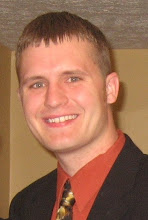Weather: Fair weather, partly sunny. A few showers throughout the day. Temperatures around 65 degrees.
Sleeping on the third level of the bunk beds in the cabin was a unique experience. I am not sure if I was worried about falling out, but I did not sleep very well. This could have been partly due to a group of people running through the cabin at 1:00 a.m. playing loud music and spraying the water hose. My ability to sleep went downhill from there.
Following breakfast the entire UNL group along with 6 additional students from Missouri were outfitted with a helmet, wetsuit, undershirt, windbreaker, and boots. We boarded a Mazda-mini bus (reminded me of an extended version of my friend, Mark Leonhardt's monster mini) and headed for our whitewater raft entry point into the Rangitata River. Due to the excessive rainfall over the past week our entry point was further down the river than originally planned. We ended up rafting on stage 2 rapids instead of stage 5 rapids in the river's gorge.
The raft I was in included myself, Marcus, Dusty, Kayla, Kyle, Nora, Nate, Pate, and our guide, "Chunk". Since we had 8 people in our raft we didn't all need to paddle. I rode on the front of the raft for the beginning of our trip down the river breaking many of the waves. Chunk was all about a great adventure and let us capsize the raft at one point on the trip. Aside from loosing my shoe and Kayla being trapped under the raft for a brief time, I really enjoyed the experience. The water was colder than I expected and provided an additional "shock factor".
The scenery on the river was well worth the trip. Sheep and deer farms lined the riverbanks in paddock pasture systems. We all felt a bit close to home because of the many pivots in operation throughout the pastures to keep the grass green and growing. After about a two hour rafting adventure, we loaded up the rafts and headed back to the cabin. We enjoyed a traditional kiwi lunch and boarded the bus to head for Lincoln University.
On the bus ride back to Lincoln we stopped at a little church around Mount Peel, New Zealand. There me met a fourth generation New Zealander, John Acland. John's ancestors originally staked 250,000 acres of land in the area and were the first to farm the plains. It was the Acland family that built the church we were in called, "The Church of the Holy Innocents." Through a radio interview with John I learned that he has served on many boards including the Chair of the New Zealand Meat Production Board. The Acland's started an ear tag company in 1972 spurring from a tag design they saw in Brighton, CO from John Ritchie. The ear tag company provided a unique design and saved the operation from bankruptcy.

Another stop took us to a new irrigation system installed on the Canterbury Plains. The system was impressive, consisting of several dams in the irrigation canal that powered turbines to efficiently pump water through the center pivots and irrigation sprinklers. Our University of Lincoln coordinator, Errol, said the new irrigation system would be paid off in approximately 7 or 8 years. Prior to this new system, diesel engines had been used to irrigate the wheat fields in this area of the Canterbury Plains. Errol explained that all of the wheat grown in New Zealand stays on the island. This accommodates about half of the country's needs and all of the additional wheat is mostly imported from the United States and Canada. This sounds like a positive for our wheat growers in the United States.
Tonight will consist of supper and more cards. Tomorrow we head back to the classroom.
Take care,
Matt

No comments:
Post a Comment